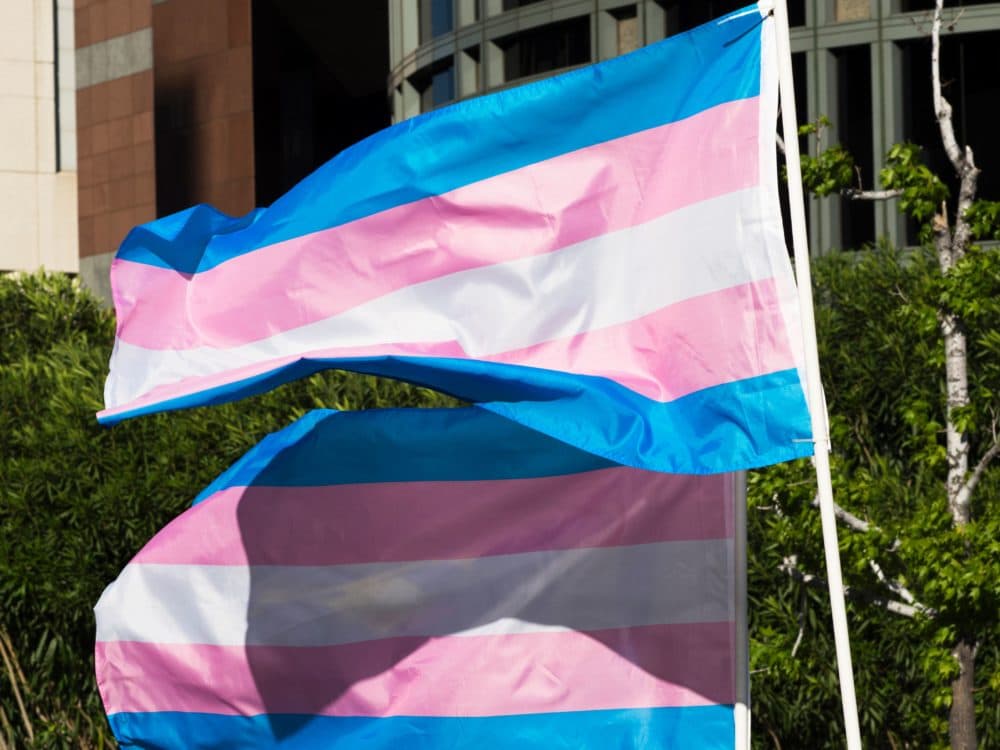Advertisement
How The Trump Administration Has Impacted Transgender Rights

A controversial new rule that could allow homeless shelters to turn away transgender people based on physical appearance is the Trump administration’s latest attempt at restricting trans rights.
Proposed last month, the rule would allow federally funded single-sex shelters to turn away people whose assigned sex at birth doesn't correspond with the population at the shelter.
Last week, members of Congress submitted a letter saying the proposal was "anti-transgender" and could empower shelter providers to discriminate against trans people. But Housing and Urban Development Secretary Ben Carson said the rule would allow better accommodation of shelter providers’ religious beliefs.
This rule is “one of the most offensive anti-trans proposals” since Trump took office, says Vox political writer Katelyn Burns, the first openly transgender Capitol Hill reporter in the U.S.
If a trans woman showed up at a women’s shelter, for example, the shelter owner could send them to a men’s shelter — putting them at risk of sexual assault or harassment, Burns explains. And the rule specifically lists traits such as height, the presence of an Adam’s apple and the size of hands or feet that target women.
“The way that the rule is crafted is actually really problematic, not just for trans women, but for all women,” she says, “because it would give shelter operators license to judge a woman's appearance and try to spot anything that doesn't correspond with, quote unquote, womanhood.”
No evidence suggests allowing transgender people into shelters that correspond with their gender identity is dangerous. The rule even acknowledges that there’s no verified instances of trans women posing a risk to cisgender women, she says.
But the rule proposes the threat of “big, hairy men pretending to be trans” to gain access to women’s shelters, she says, which doesn’t happen.
In June, the administration reversed an Obama-era health protection for transgender patients. Some conservatives argued the rule allowed patients to force doctors to perform gender reassignment surgeries, which Burns reports isn’t true.
Advertisement
This change allows insurance companies to return to denying transgender patients coverage for transition services, she says.
“The claim that doctors are being forced to perform [gender reassignment surgery] on trans people is just frankly ridiculous because it's a highly specialized practice that maybe 50 or so surgeons in the country are trained to perform,” she says. “Trans people aren't going to random doctors demanding new genitals. That's just not a thing.”
The Trump administration’s restriction of transgender rights began mere weeks into his presidency when an Obama-era guidance on allowing transgender students to use bathrooms of their choice was rolled back.
From the Department of Education, the guidance outlined how schools can create a more inclusive environment but it wasn’t an official rule. But even this suggestion went too far for Education Secretary Betsy DeVos and the Trump administration, Burns says.
The results of the coming election will determine the impact of these changes, she says. If Trump loses in November, all of his administration’s changes on transgender rights could get reversed.
“But that puts trans people in sort of a state of limbo because our rights would then depend on whoever is president,” she says. “So every four years we could potentially be seeing these vast swings in our rights, which is really untenable.”
As the Trump administration continues to introduce changes to transgender protections, people like Aidan Key are still working to make schools more inclusive. Key is the founder and president of Gender Diversity, an organization that serves families of transgender children.
The progress of his work in schools has steadily continued, he says.
“From my perspective, what I witness are educators, administrators and parents themselves who recognize the need to include children, all children in schools,” he says. “And those steps to include trans and gender-diverse children are just part of that journey.”
But some people fear that the political climate of the country could halt or revert progress, he says. A smaller group of people and institutions, such as school districts, fear that addressing the topic of gender-diverse children will spark pushback with people who view it as a moral or political issue, he says.
Transgender children and adults are disproportionately more likely to experience homelessness. Key says the Trump administration’s shelter rule could bring “significant and dire circumstances” upon transgender people who can’t find employment or housing.
During his two decades of working with trans and gender-diverse children, Key has witnessed “a progression of thought and understanding” from people of all political affiliations.
At many of the schools he’s worked with, people thought this topic would be poorly received — but this hasn’t been the case. Instead, he finds that educators and administrators care about the experience of their students and their families.
While what happens in Washington can slow progress down, politics can’t stop people from seeing how authentic gender expression can restore the joy in a child’s life, he says. To continue moving forward, adults need to focus on how to better understand the issues transgender children face.
“The heart is there and the progression forward is there. Will rescindence of guidance slow things down? Yes, absolutely,” he says. “But as far as the big picture, you can't unknow something.”
Jill Ryan produced and edited this interview for broadcast with Tinku Ray. Allison Hagan adapted it for the web.
This segment aired on August 5, 2020.

